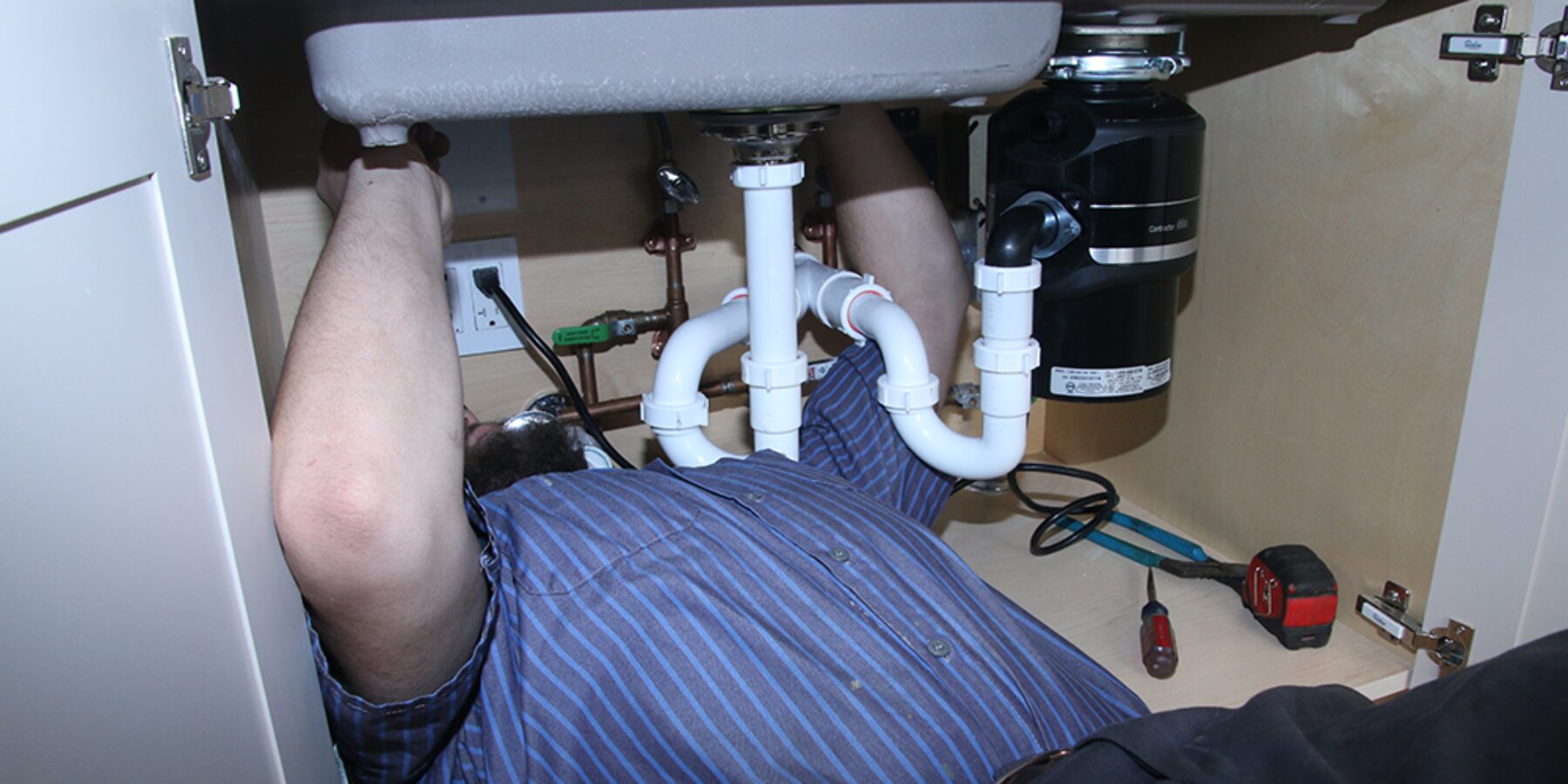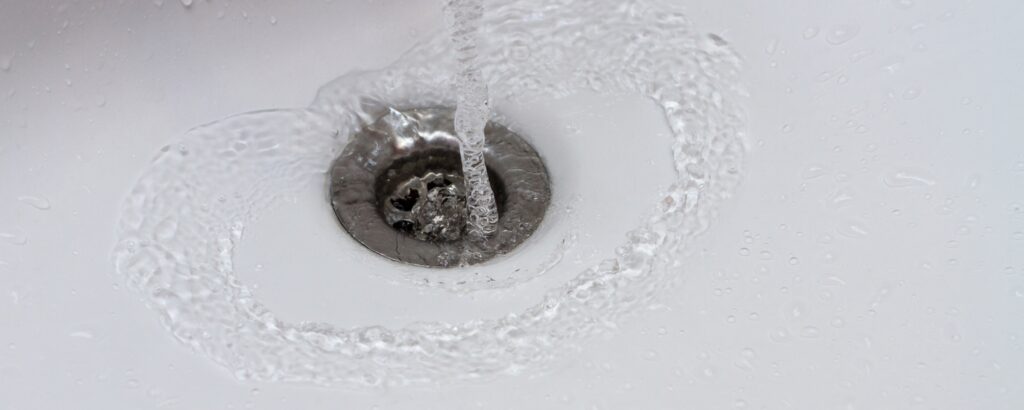What are your opinions on 7 Ways To Fix A Slow-Draining Sink Before You Call A Plumber?

Intro
We have actually all existed: You're brushing your teeth or washing your hands, and you discover the water merging in the sink. Instead of rapidly swirling down the tubes, it sticks around, transforming your once-refreshing early morning routine into a miniature overload scene. A slow-draining sink isn't simply annoying; it's typically an indicator of larger plumbing problems prowling beneath the surface. The good news is that the majority of slow-draining sinks can be taken care of with a little knowledge, a couple of basic tools, and some perseverance. Prepared to tackle this task head-on? Let's roll up our sleeves and dive right in.
Recognizing the Reasons For a Slow-Draining Sink
Before you begin poking around in your pipelines, it helps to understand what may be creating the slowdown. Understanding the source makes it less complicated to choose the ideal solution.
Common Culprits Behind Slow Drain
So, what's blocking things up? Usually, it's a blend of daily particles-- believe hair, soap residue, toothpaste deposit, and remaining food particles. With time, these little bits collect and hold on to the pipe walls, slowly tightening the passage and making it harder for water to go through. In some cases, mineral deposits from difficult water can likewise add to the crud, developing the ideal storm for persistent obstructions.
When is it Time to Do Something About It?
If you observe the water draining slower than typical, it's a good idea to step in faster as opposed to later on. Waiting too long could cause finish obstructions, undesirable smells, or perhaps pipe damage. If the water takes greater than a few secs to clear out after shutting off the faucet, consider it a red flag and prepare yourself to put on your DIY hat.
Devices and Materials You'll Require
The right devices make all the distinction. Luckily, you will not need a totally stocked plumber's van to do the job.
Important Devices for Do It Yourself Fixes
A plunger is your best beginning factor. A little, sink-sized plunger creates suction that can displace small blockages. For more relentless clogs, a drainpipe snake (sometimes called a plumbing technician's auger) works wonders. A pair of handwear covers, a flashlight, and possibly a set of protective safety glasses are likewise useful.
Advised Cleaning Solutions
Light meal soap and warm water can help break down oily build-up. A combination of baking soft drink and vinegar is a time-tested natural remedy, and chemical cleansers provide an even more environmentally friendly strategy. Keep chemical drainpipe cleaners as a last hope, as they can be harsh on your pipes.
Security First: Safety Measures and Prep work
Prior to you launch into unclogging setting, think of safety. You're handling potentially filthy water and debris, so slip on a pair of gloves. If you're making use of chemical cleaners, make sure the room is well-ventilated and comply with the guidelines on the label.
Safety Equipment and Workspace Setup
Lay down some old towels or dustcloths around the sink area to capture splashes. Clear away any kind of items that might get in your method, like soap dispensers or tooth brush owners. Make certain you have excellent lighting-- get a flashlight if required.
Step-by-Step Guide to Fixing a Slow-Draining Sink
Currently, allow's get into the nitty-gritty. This detailed procedure will direct you through simple strategies to recover your sink's drain.
Action 1: Remove and Clean the Stopper
Typically, the stopper (that little plug you lower to block water) is the very first wrongdoer. Remove it carefully and clean off any type of hair or crud entraped around its base. Rinse it thoroughly before putting it back in place.
Step 2: Utilize a Plunger to Remove Debris
Got that plunger ready? Placement it over the drainpipe and offer it a couple of company pumps. The concept is to develop suction that can loosen any blockage. If you see bits of particles drifting up, you're on the appropriate track.
Action 3: Try a Drain Serpent or Cable Hanger
If the bettor doesn't do the trick, it's time to highlight the drain snake. Delicately feed it into the drainpipe and spin as you go. You may really feel some resistance-- that's likely the clog. Maintain twisting and drawing up until you remove the obstruction. If you do not have a drain serpent, a straightened cord hanger can operate in a pinch.
Tip 4: Use a Do It Yourself Drain Cleaner
An all-natural cleaner made from cooking soft drink and vinegar can break down recurring crud. Pour half a cup of cooking soft drink into the drainpipe, complied with by half a mug of vinegar. Let it fizz for about 15 minutes, then flush with warm water. This chain reaction typically does marvels for small obstructions.
Tip 5: Rebuild and Evaluate the Sink
Put whatever back together and run the tap. Does the water now swirl down the tubes at a commendable rate? If yes, provide on your own a pat on the back. If not, do not despair-- there are still a couple of even more tricks up your sleeve.
Different Approaches for Stubborn Clogs
Not all obstructions are developed equivalent. If your sink still declines to comply, think about these alternative solutions.
Baking Soda and Vinegar Method
We currently touched on this, yet it's worth keeping in mind again. This mild, green method is more secure than chemical cleaners and often fairly efficient.
Chemical Drain Cleansers
Enzyme-based cleansers utilize natural microorganisms to digest organic matter. They're an exceptional option if you're seeking to avoid harsh chemicals. Just keep in mind, they may take a bit longer to function their magic.
Chemical Drainpipe Cleaners: Pros and Cons
Chemical cleansers can blast via tough clogs fast, however they're not without drawbacks. They can create warm and fumes, damage pipelines if made use of exceedingly, and posture environmental threats. Utilize them moderately, and constantly follow the instructions thoroughly.
Safety Nets to Keep Your Sink Flowing
Prevention is the very best cure. By taking on a few easy routines, you can keep your sink from decreasing in the first place.
Regular Cleaning Routines
Wipe down the sink basin and fixture area regularly. Get rid of hair or food fragments before they have a possibility to wash down the drainpipe.
Staying Clear Of Damaging Substances Away
Hesitate before unloading coffee grounds, oil, or coarse vegetable scraps down the sink. These perpetrators hold on to pipe walls, developing obstructions in time.
Routine Upkeep Checks
Arrange a fast monthly inspection. Run warm water with the sink for a few mins, taking notice of the circulation. If it seems slow-moving, act fast prior to it comes to be a full-on clog.
When to Call a Professional Plumbing
Often, despite exactly how hard you try, that clog just won't move. That's when it's time to generate the pros.
Signs That Indicate an Extra Severe Problem
If your sink drains gradually in spite of several attempts, or if you see water backing up in various other fixtures (like your shower or commode), you may have an extra major pipes issue hiding much deeper in the system.
Stabilizing DIY Efforts with Specialist Help
While DIY can conserve you money and use a feeling of accomplishment, there's no pity in calling a specialist. A specialist plumber can evaluate your whole pipes arrangement, making certain there's no underlying damages or long-term problem that might cost you extra later on.
Contrasting Prices and Long-Term Solutions
Prior to choosing, think about the big picture. An affordable, quick fix could solve the problem temporarily, however investing in a more long-term service might conserve you money and anxiety in the future.
Considering the Costs of DIY vs. Specialist Solutions
DIY solutions often set you back little greater than the cost of a plunger or a bottle of cooking soda. Specialist solutions, on the other hand, featured a price yet may stop repetitive problems and pricey repairs later on.
Buying Quality Fixtures and Upgrades
If your sink's style contributes to constant clogs, it might be worth upgrading to higher-quality fixtures or changing the plumbing layout. Consider this an investment in your home's performance and comfort.
Final thought
A slow-draining sink can seem like a small irritability, yet it's usually an indicator that your pipes needs a little TLC. By comprehending the root causes, using the right devices and methods, and dedicating to basic preventive measures, you can keep your sink moving easily. And when all else fails, never ever wait to call in an expert-- your home's plumbing deserves the investment in treatment and maintenance.
Three Common Ways to Fix a Slow Drain
Baking Soda Method
Boil a full pot of water. Measure out cup of baking soda and pour it down the drain. Then take cup of the magical cleansing substance known as white vinegar and drop that down there too. Allow the mixture to fizz in the drain for five minutes as the vinegar and baking soda combine. Now dump in that whole pot of boiling water. This combination of cleaning substances should clear out anything that is causing your sink to drain slowly. If it doesn t...
Zip-It
If the baking soda method doesn t clear out your drain, it may be because a significant amount of hair and/or other debris has collected there and you need to remove it. Purchase a Zip-It tool at any home improvement or hardware store and insert it into your drain. It will catch any collected hair or debris that s blocking the flow of water. Pull it out. If it s got a big clump of hair, etc. on the end, you ve probably got your culprit.
Drain Cleaner
If these methods don t work, there is the standard drain cleaner that you can also buy in a hardware store or even your local grocery store. It s better if you can use a household solution, but these drain cleaners often work in a pinch. They re very simple to use. You generally just dump them in your drain and wait. If even this method is not effective, it may be time to call the plumber.
https://www.mrrooter.com/oneida/about-us/blog/2017/july/three-common-ways-to-fix-a-slow-drain/

I'm very occupied with Solved! How to Fix a Slow Sink Drain and I am praying you appreciated the entire article. Make sure you pause to distribute this post if you appreciated it. Thanks a bunch for being here. Revisit us soon.
Go Deal